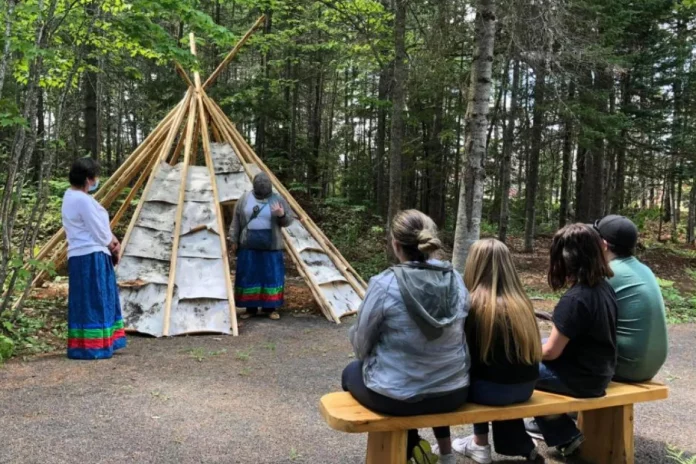
The Government of New Brunswick is teaming up with the federal government to provide the Elsipogtog Mi’kmaq Cultural Centre with $927,500 over the next three years.
According to a news release from the provincial government on Oct. 21, New Brunswick will contribute $443,750 to the project over three years, while Ottawa will provide $483,750 over the same time frame.
“This project has tremendous upside for Elsipogtog, its neighbouring communities and the province, and we are proud to offer our support,” said Arlene Dunn, New Brunswick’s minister of aboriginal affairs, in the news release.
“The upgrades and additions will enhance the centre as a tourism destination and help build on its growing success and will offer a place for New Brunswickers to learn about Mi’kmaq culture.”
The project, valued at $1,275,750, aims to expand the centre’s current space to enhance tourism opportunities for Elsipogtog First Nation. The centre offers guided tours of Mi’kmaq culture, where guests experience smudging and learn from an interpretive knowledge keeper.
Guests can also visit a community-raised teepee, an authentically constructed wigwam, longhouse, sweat lodge and an artisan gift shop, where most of the items available are made by hand in Elsipogtog First Nation and the surrounding Mi’kmaq communities.
Ginette Petitpas Taylor, the minister responsible for the Atlantic Canada Opportunities Agency (ACOA), said in the news release that the federal government is proud to support tourism offerings that both residents and visitors can experience and learn from.
“Elsipogtog will be able to share Mi’kmaq culture with more people and provide them with authentic learning opportunities,” said Petitpas Taylor.
Elsipogtog First Nation Chief Arren Sock said the upgrades to the Elsipogtog Mi’kmaq Cultural Centre will help the community build on its current successes so it can continue providing “economic spinoffs” to Elsipogtog and Kent County.
“This support also allows the community to continue to promote awareness of our culture and our history in a progressive way so that prejudices and systemic racism are addressed and thus minimized for our children and future generations,” said Sock.
